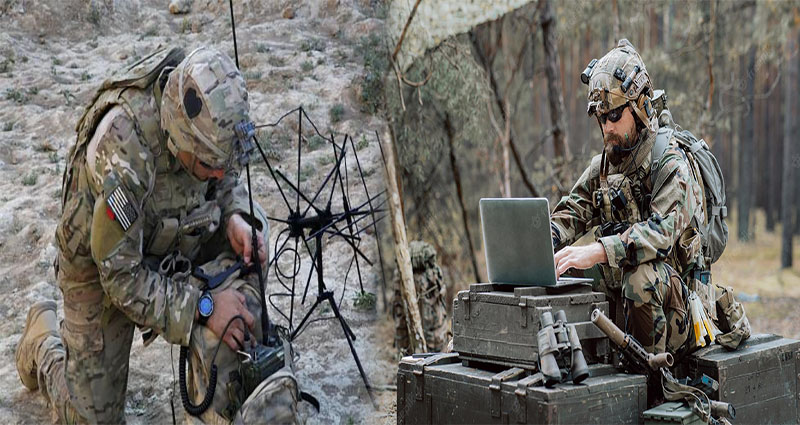As the technology landscape continues to advance and the battlefield becomes increasingly technologically sophisticated, the U.S. Army is introducing a new military occupational specialty for Soldiers: the network communications systems specialist. This new position will be part of the 25H occupational group and is open for applicants immediately. This new career field combines several existing 25-series jobs to train Soldiers in well-rounded technical skills and prepare them for a battlespace that will be more complex and advanced. To enter the career field, applicants must go through 19 weeks of advanced individual training (AIT).
Multimedia Illustrators
Multimedia Illustrators are part of the Army’s media department, working with various multimedia imaging equipment to create graphics for instructional and training materials. Their work can be seen on various Army publications, posters, charts, and websites. They also contribute to motion pictures and television productions. A multimedia illustrator’s training includes classroom and on-the-job training. This position requires an understanding of a wide range of computer software programs.
Army positions requiring this position include Information Technology Specialist, Radio Operator-Maintainer, Network Switching Systems Operator-Maintainer, Multimedia Illustrator, and Multichannel Transmission Systems Operator-Maintainer. Some jobs require additional skills, such as working with social media and Photoshop. A person in this position will also need to have knowledge of how to use Microsoft Office365. They must also have knowledge of how to use social media sites such as Facebook.
A Multimedia illustrator may also work with an organization’s design team to develop multi-media presentations and web assets. This job also includes collaborating with editors to ensure that each project meets the organization’s goals. In addition to this, a multimedia illustrator can develop illustrations and logos for various departments.
Combat Documentation/Production Specialists
Combat Documentation/Production Specialists are professionals who use video, audio, and still images to help soldiers fight the enemy. These specialists also plan and document combat operations. These professionals undergo specialized training and must have experience in video production, digital imaging, and computer networking. They also have knowledge of photography, information technology, and satellite and microwave communications. These specialists spend ten weeks at basic combat training and another 12 weeks in advanced individual training.
MOS 25M Multimedia Illustrator and MOS 25V Combat Documentation/Production Specialist are being combined into one MOS, the Combat Documentation/Production Specialist. The former MOS is not part of the Signal Corps community, while the latter is at the Defense Information School in Fort Meade, Maryland. If you are interested in joining the Army, contact an Army recruiter. They can help you determine the best MOS for you.
Satellite/microwave systems chief
Satellite/microwave systems chiefs are responsible for the planning, installation, and operation of satellite communications systems. Their duties range from overseeing large satellite earth terminals to transportable tactical multichannel satellite systems. They also provide technical advice to commanders on the integration of tactical and strategic communications networks. They may serve as advisers to a commanding officer or provide technical support to subordinate units. They also may be responsible for implementing a network management plan or preparing preventative maintenance services for assigned equipment.
The job description of a satellite/microwave systems chief varies depending on the level of specialized knowledge of the individual. In some cases, the role includes technical assistance, planning, and maintenance, while in others, it includes planning and development. The job requires the ability to provide technical advice and support, and to write operating procedures and policies. They must also be adept at determining the capabilities of assigned equipment. They also must be able to develop relationships with other supported units and conduct training of subordinate personnel.



